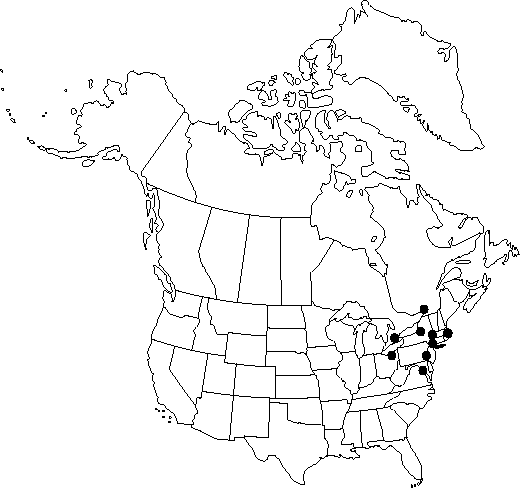Aristolochia clematitis
Sp. Pl. 2: 962. 1753.
Herbs, erect, to 1 m. Young stem ribbed, glabrous to puberulent. Leaves: petiole 4-7 cm. Leaf blade deltate to reniform, 4-6 × 5-6.5 cm, base cordate, sinus depth 1-2 cm, apex obtuse to rounded; surfaces abaxially glabrous; venation palmate. Inflorescences on new growth, axillary, fascicles or solitary flowers; peduncle not bracteolate, 1-4 cm. Flowers: calyx yellow-brown, curved; utricle angled upward, ovoid to globose, 0.5 × 0.2-0.3 cm; syrinx absent; tube curved upward, cylindric, 1-3 × 0.2-0.3 cm; annulus absent; limb purple, 1-lobed, lobe funnel-shaped, 1-6 cm, pilose; gynostemium 3-lobed, globose, 1-4 mm; anthers 6; ovary 6-locular, 1-4 cm. Capsule ± globose, 3 × 2-3 cm, dehiscence basipetal; valves 6; septa entire, not attached to valves. Seeds flat, triangular, 1 × 1.2 cm.
Phenology: Flowering summer.
Habitat: Waste places, roadsides, ballast
Elevation: 0-100 m
Distribution

Ont., Que., Md., Mass., N.Y., Ohio, Pa., Europe.
Discussion
Aristolochia clematitis is occasionally cultivated, sometimes escapes, and probably does not persist.
Selected References
None.